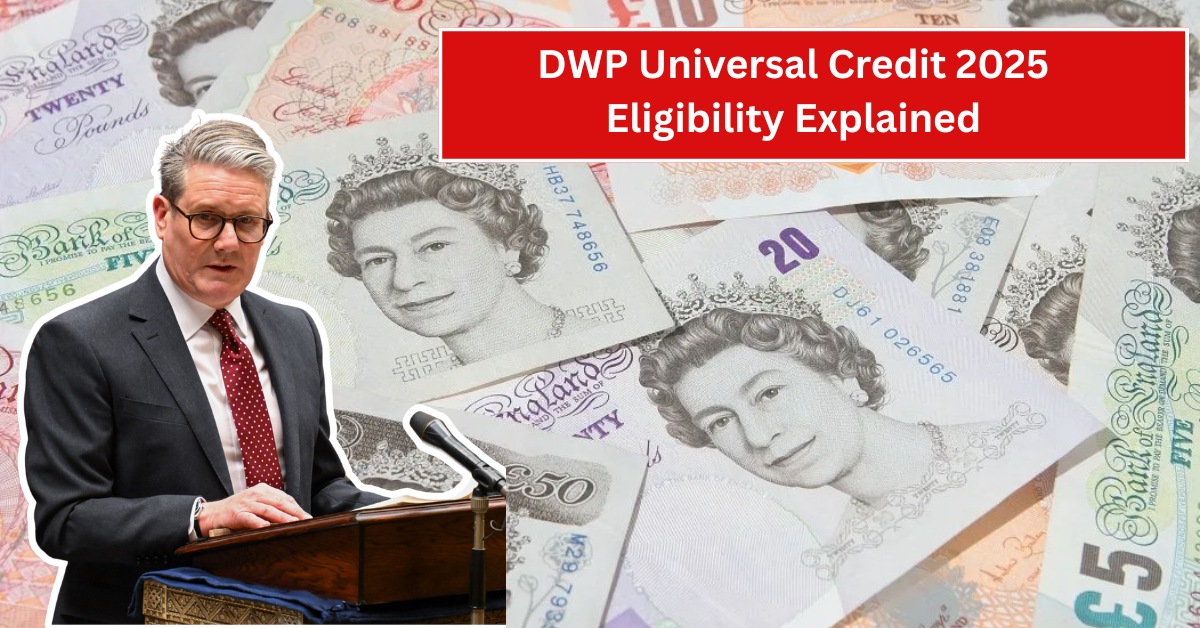
Universal Credit (UC) is a popular financial support system by the Department for Work and Pensions (DWP) in the UK. In 2025, many changes have been introduced to make it easier for people to understand who can claim and receive benefits. Whether you are a student, a worker, or someone facing financial hardship, knowing your eligibility can help you access the support you need.
This guide will explain in simple terms the 2025 eligibility rules for Universal Credit, the benefits you may get, and the step-by-step process of how to apply. If you are living in the UK or planning to move there for work or studies, this information will be very useful to secure your financial wellbeing.
What is Universal Credit?
This Article Includes
Universal Credit is a monthly payment to help with living costs for people on low income or out of work. It replaces six older benefits, making it simpler to claim all in one place. The UK government designed Universal Credit to support families and individuals during tough financial times.
This benefit can cover basic expenses like rent, bills, and food. The amount you receive depends on your income, savings, and personal circumstances, such as if you have children or a disability.
Who is Eligible for Universal Credit in 2025?
Eligibility rules have been updated for 2025 to include more people and simplify the process. To qualify, you must meet these main criteria:
- Be aged 18 or over (some exceptions for 16 or 17-year-olds apply)
- Be under state pension age
- Live in the UK and have the right to claim benefits
- Have a low income or be out of work
- Have savings of less than £16,000
Also, if you are working part-time or full-time but your earnings are low, you could still claim Universal Credit to top up your income. Students usually cannot claim Universal Credit unless they meet certain conditions, like having children or a disability.
Benefits You Can Get with Universal Credit
Universal Credit may help you in several ways depending on your situation. Here are the key benefits:
- Basic allowance: A fixed amount to help with daily living costs.
- Housing costs: Support to pay your rent or mortgage interest.
- Child element: Extra money if you have dependent children.
- Work-related requirements: If you can, you may get help with finding a job or training.
- Disability or health condition element: Additional support if you or anyone in your family has a long-term disability or health issue.
The total amount you get is calculated by your earnings, family size, and any other benefits you may already receive. If you have a full-time job but low wages, Universal Credit helps bridge the gap between your income and essential expenses.
How to Apply for Universal Credit in 2025
Applying for Universal Credit is a straightforward online process designed to be fast and easy. Follow these simple steps:
- Create an online account: Visit the official Universal Credit website and sign up for an account.
- Fill in the application form: Provide personal details such as your address, income, savings, and family information.
- Submit documents: You may need to upload proof of identity, income, and rent payments.
- Attend an interview: You might be asked to have a phone or face-to-face interview with a work coach to discuss your claim.
- Wait for a decision: It usually takes five weeks to get your first payment after your claim is approved.
If you are not comfortable applying online, there are many local help centres and charities that can assist you with the process.
Tips for a Successful Universal Credit Claim
To make sure your claim goes smoothly, keep these tips in mind:
- Always provide accurate and up-to-date information.
- Keep a record of your application and any communications from DWP.
- Report changes in your income or personal circumstances immediately.
- Use online calculators before applying to estimate how much you could get.
- Seek advice from official help centres or support groups if you are unsure.
Common Questions About Universal Credit 2025
Can I receive Universal Credit if I am a student?
In most cases, students cannot claim, but if you have children, a disability, or are a lone parent, you may be eligible.
What happens if my income changes after claiming Universal Credit?
You must report any income change quickly, as it affects the amount you receive.
Can I work and still get Universal Credit?
Yes! Universal Credit supports people who work but earn low wages.
Conclusion
Universal Credit in 2025 continues to be an important support for many UK residents struggling with financial challenges. By understanding the eligibility criteria, the benefits you can claim, and the easy application process, you can ensure you get the help you deserve.
If you think you qualify, do not wait—check your eligibility and apply today. With the right information and support, Universal Credit can make a real difference to your life and help you build a stable future.




































